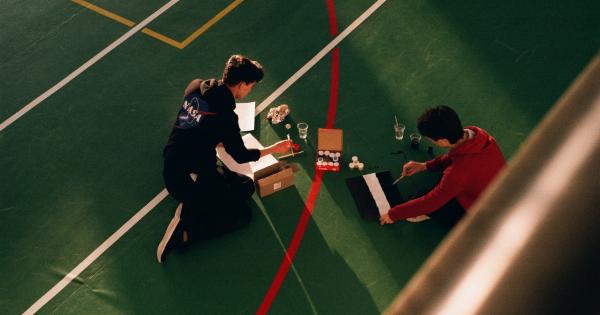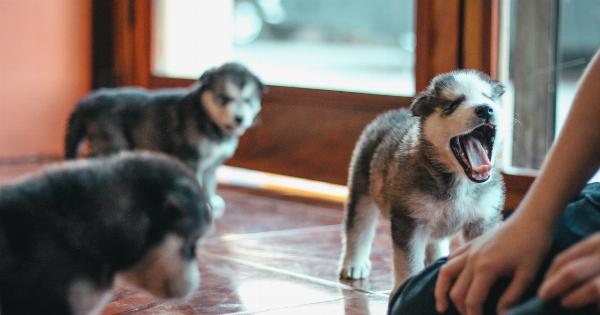When it comes to pets, many people are drawn to the charm and cuteness of tiny dog breeds. From Chihuahuas to Pomeranians, these pint-sized pups often steal our hearts with their adorable appearance and lovable personalities.
However, it’s important to remember that despite their small size, these tiny dogs have big hearts and unique needs that should not be overlooked. In this article, we will explore the world of tiny dogs and shed light on why their needs should always be a top priority.
The physical needs of tiny dogs
While tiny dogs may not require as much physical activity as their larger counterparts, they still need regular exercise to keep them happy and healthy. Daily walks and playtime are essential for maintaining their overall well-being.
It’s crucial to provide them with enough space to move around and explore their surroundings, whether it’s in your backyard or a local park. Additionally, small breeds are prone to dental issues, so it’s important to brush their teeth regularly and schedule regular vet check-ups to prevent any potential problems.
Socialization is key
Tiny dogs are often known for their big personalities. Despite their size, they have a lot of love to give and enjoy being around people and other animals. Socialization is crucial for tiny dogs to develop good manners and prevent any behavioral issues.
By exposing them to a variety of people, animals, and environments, you can help them become well-adjusted and confident members of your household. Regular interaction with other dogs, attending obedience classes, and exposing them to new experiences will help them thrive socially.
Training tiny dogs
Just like any other dog, tiny breeds need proper training. Many people mistakenly believe that small dogs are more difficult to train or don’t require as much discipline. However, this couldn’t be further from the truth.
Consistency, positive reinforcement, and patience are key when training small dogs. Their intelligence and eagerness to please make them quick learners, but they can also develop bad behaviors if not properly trained.
Investing time and effort into training will help you build a strong bond with your tiny pup and ensure a well-behaved companion for years to come.
The importance of a balanced diet
Nutrition plays a crucial role in the health and well-being of any dog, regardless of size. Tiny dogs have different dietary requirements compared to larger breeds.
Due to their small size and high metabolism, they need nutrient-dense meals that provide them with the energy and nutrients they need without overfeeding them. It’s important to choose a high-quality dog food specifically formulated for small breeds and follow feeding guidelines provided by your veterinarian.
Avoid overindulging them with treats, as excessive weight gain can lead to a variety of health issues.
Healthcare and regular check-ups
Just like any other pet, tiny dogs require regular healthcare and veterinary check-ups. Regular visits to the vet will help detect any potential health issues and ensure early intervention.
Tiny dogs are prone to certain health problems, including dental issues, luxating patella, and hypoglycemia. Routine vaccinations, parasite prevention, and dental care are essential to keeping them healthy and happy. Regular grooming is also important for tiny breeds, as their coats may require extra care and attention.
Providing a safe environment
Creating a safe environment for your tiny dog is crucial. Due to their small size, they are more vulnerable to accidents and injuries.
Take proactive measures to puppy-proof your home, removing any potential hazards such as toxic plants, small objects that could be swallowed, and securing any open spaces or balconies. Additionally, consider providing them with a designated area where they can retreat to rest and feel secure. Just like any dog, tiny breeds need a safe and comfortable space to call their own.
Not just an accessory
It’s important to remember that tiny dogs are not just fashion accessories or cute playthings. They are living beings with unique needs and emotions. Owning a tiny dog is a commitment that should not be taken lightly.
They require love, attention, and care just like any other dog. Before bringing a tiny dog into your life, ensure that you have the time, resources, and commitment to meet their needs and provide them with a fulfilling life. With the right care, tiny dogs can bring immense joy and companionship to your life.
The rewards of owning a tiny dog
Despite their unique needs, owning a tiny dog can be a truly rewarding experience. Their small size makes them ideal for apartment living, and they often have longer lifespans compared to larger breeds.
Tiny dogs are known for their fierce devotion and loyalty to their owners, often forming strong bonds. They are excellent companions for singles, families, and the elderly, providing unconditional love and emotional support. The love and joy they bring to our lives are immeasurable, making all the effort and care worthwhile.
Conclusion
Tiny dogs may be small in size, but they have big hearts and unique needs that deserve our attention and care.
From their physical and social needs to proper training, nutrition, healthcare, and providing a safe environment, it’s important to always prioritize their well-being. Owning a tiny dog is a commitment that requires time, effort, and responsibility, but the rewards are immeasurable. The love, companionship, and joy they bring to our lives make it all worthwhile.
So, next time you encounter a tiny dog, remember not to overlook their needs – they might just change your life.



























